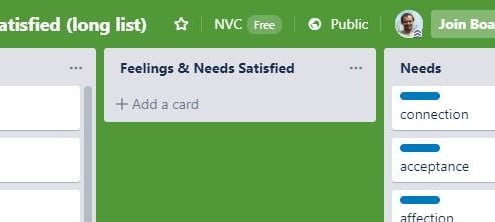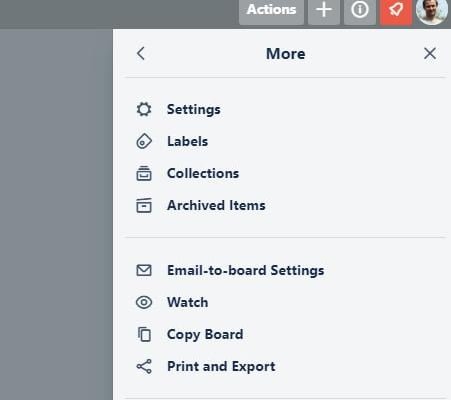
Marshall Rosenberg
Marshall Rosenberg
Marshall Rosenberg (October 6, 1934 – February 7, 2015) was an American psychologist, mediator, author and teacher. Starting in the early 1960s he developed Nonviolent Communication, a process for supporting partnership and resolving conflict within people, in relationships, and in society. He worked worldwide as a peacemaker and in 1984 founded the Center for Nonviolent Communication, an international non-profit organization for which he served as Director of Educational Services.
Nonviolent Communication
Nonviolent Communication (abbreviated NVC, also called Compassionate Communication or Collaborative Communication) is an approach to nonviolent living developed by Marshall Rosenberg beginning in the 1960s.
At its heart is a belief all human beings have capacity for compassion and empathy. We only resort to violence or behavior harmful to others when we do not recognize more effective strategies for meeting needs.
Habits of thinking and speaking leading to use of violence (social, psychological and physical) are learned through culture. NVC theory supposes all human behavior stems from attempts to meet universal human needs. The needs are never in conflict. Rather, conflict arises when strategies for meeting needs clash. NVC proposes people identify shared needs, revealed by the thoughts and feelings surrounding these needs, and collaborate to develop strategies and make requests of each other to meet each other’s needs.
The result is interpersonal harmony and learning for future cooperation.
NVC supports change on three interconnected levels: within self, between others, and within groups and social systems. NVC greatest impact has been in personal development, relationships, and social change.

Marshall Rosenberg lecturing in a Nonviolent Communication workshop (1990)
NVC is ostensibly taught as a process of interpersonal communication designed to improve compassionate connection to others. However, due to its far-reaching impact, has many beneficial “side effects” as a spiritual practice, as a set of values, as parenting Best Practices, as a tool for social change, as a mediation tool, as an educational orientation, and as a worldview.
NVC Books

Book Download
Videos
Basics of Nonviolent Communication
NVC (San Francisco Workshop)
Audio Materials:
NVC Training Course:
1. The Introduction to NVC process
2. How to apply NVC within oneself
3. The honesty with others
4. The Dynamics of the Empathy
5. The intimate relationships
6. Exercising and experiencing the authority
7. The Power of Empathy in Healing, Mediation and Reconciliation
8. Use of NVC for social change
9. The role of sincere gratitude and compassion
Feelings & Needs Literacy
1. Memorizing NVC Vocabulary
In some way, learning NVC language of feelings and needs is similar to the learning of a new language, and with NVC practitioners being from all parts of the world we recognize the need of multilingual language tool which would allow us to spend a regular amount of time for internalizing this language and making it a natural expression of our being for keeping the connection with oneself and staying in touch with others. For this reason, we initiated the multilingual project of creation NVC Vocabulary learning practice.
The project consists of several stages:
- Compiling a vocabulary in different languages using google spreadsheets
- Creating Vocabulary practice on Memrise.com
- Introduction and popularisation of language learning tool amongst the practitioners and participants of the workshops.
See the vocabulary list:
NVC Vocabulary of Feelings & Needs (short list):
https://docs.google.com/spreadsheets/d/1tSeUYDvdsGSbE7OASmlMRZwWI845CBL4HmkkpFa5wis/edit?usp=sharing
NVC Vocabulary of Feelings & Needs (long list):
https://docs.google.com/spreadsheets/d/1ADXfKrTDzdE_UkZ5FWnjISINV_Q3vUIVvm-lOn8dbQc/edit?usp=sharing
2. Card Sorting Practice (Online)
Step 1: For Participating in Card Sorting Practice create a free account on Trello.com and join the NVC Team on Trello following this link: link
Step 2: Chose one of the sorting lists below and make your own private copy for personal practice. (see the images with instructions below)
Feelings & Needs Sorting Sets:
English
For Participating in English Card Sorting Practice join the English NVC Team on Trello
Short List:
- The Complete Set: All Feelings & Needs
- Celebration Set: Feelings & Needs Satisfied
- Mourning Set: Feelings & Needs not Satisfied
- Masked feelings (Judgments): Judgments & Feelings & Needs not Satisfied
Long List:
- The Complete Set: All Feelings & Needs
- Celebration Set: Feelings & Needs Satisfied
- Mourning Set: Feelings & Needs not Satisfied
- Masked feelings (Judgments): Judgments & Feelings & Needs not Satisfied
Italian
(We are grateful to Alice for preparing Italian translation)
For Participating in Italian Card Sorting Practice join the Italian NVC Team on Trello
Short List:
- The Complete Set: All Feelings & Needs
- Celebration Set: Feelings & Needs Satisfied
- Mourning Set: Feelings & Needs not Satisfied
- Masked feelings (Judgments): Judgments & Feelings & Needs not Satisfied
Russian
(We are grateful to Krishna V. for preparing Russian translation)
For Participating in Russian Card Sorting Practice join the Russian NVC Team on Trello
Short List:
- The Complete Set: All Feelings & Needs
- Celebration Set: Feelings & Needs Satisfied
- Mourning Set: Feelings & Needs not Satisfied
Korean
(We are grateful to Wujin for preparing Korean translation)
For Participating in Korean Feelings & Needs Card Sorting Practice join the Korean NVC Team on Trello
Short List:
- The Complete Set: All Feelings & Needs
- Celebration Set: Feelings & Needs Satisfied
- Mourning Set: Feelings & Needs not Satisfied
- Masked feelings (Judgments): Judgments & Feelings & Needs not Satisfied






